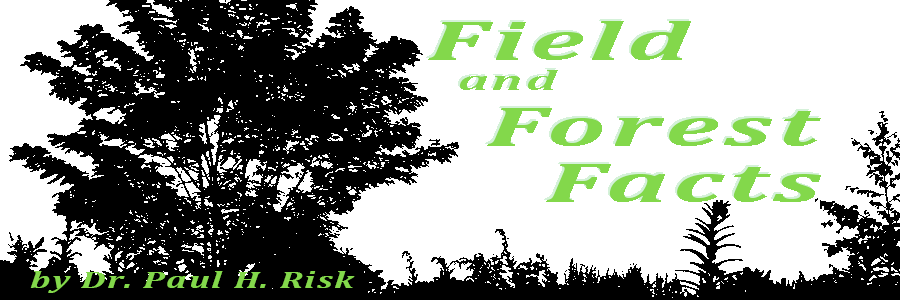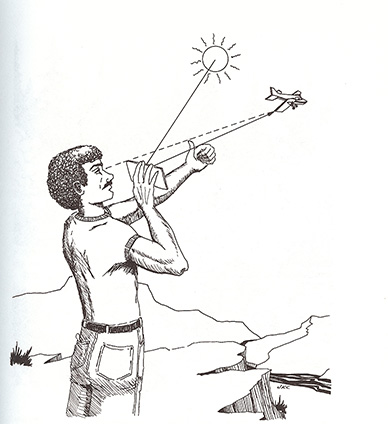RiskVA
Summer Outdoor Safety and Survival – Part 2 24 Jun 2009
Not many years ago, most people lived and worked outdoors and were prepared for its dangers, discomforts and challenges. Nowadays, we live in cozy climate controlled cocoons, some on wheels. Vehicles now come with built-in radio and GPS systems that call a central monitor in case of an accident or attack. Home alarm systems dial emergency responders if an emergency occurs. Some make the call wirelessly so burglars can’t simply cut your phone line and leave you helpless. You can even wear a necklace pendant that will notify medical personnel with a push of a button.
These are wonderful gadgets and can be life saving. But, this technology combined with inexperience and lack of outdoor knowledge has produced a dangerously ignorant and helpless populace.
Summer comes with special hazards. First, many families travel away from their familiar surroundings. Second, heat can kill, especially in desert areas. Third, grossly inexperienced people – let’s call ‘em “flatlanders” – often hike in potentially dangerous mountain areas.
Here are some basic hiking tips based on my 30 years of teaching wilderness survival to military and civilian groups.
- ALWAYS leave a travel plan with someone in authority (a Park or Forest Ranger) and someone who cares-preferably a loved one. Then NEVER deviate from the plan without notifying your backup people. That way, when you get lost, the search party will know where to start looking.
- DON’T hike alone. Take at least two people with you - one to administer first aid and the other to go for help.
- DON’T hike with a dog in bear country. Bears hate ‘em and may attack. Dogs often become pests when other hikers have to share the trail with you and your significant canine other.
- Carry a knife, whistle and matches. Knife and matches should not need an explanation. The whistle will yell “help!” long after laryngitis reduces your voice to a whispery squeak. Three whistle blasts, repeated at intervals, is an international distress signal. NEVER use the whistle except in an emergency. A small mirror can be used to signal search aircraft.
- Take a cell phone but don’t rely on it entirely. In remote areas it may not work.
- CARRY PLENTY OF WATER. That means AT LEAST a gallon per person in desert country. Many mountain areas are frequently as dry as deserts during the summer. A water filter and/or iodine water purification tablets or crystals are also recommended.
- Wear proper clothing, including boots or hiking shoes that cover your feet and ankles. Wear long pants and a hat. Sandals, flip-flops and bare midriffs mark you as a greenhorn and are an invitation to disaster. You can’t roll shorts down and lengthen a short shirt or blouse if a sudden cold storm catches you. Carry extra clothing in a small daypack. In the mountains snow can fall any time of the year.
- Take a compass and/or GPS unit. Carry and know how to use a topographic map of the area.
- Carry a small survival/first aid kit.
- If you become lost, stop and establish a campsite. You’ll be closer at that moment to your planned route of travel than if you continue to wander all over creation trying to find you way back.
- Know and abide by your personal skill and physical limits. A heart attack or fall from a cliff is no picnic in the wilderness!
Last but most important: SURVIVAL IS AN ATTITUDE! It is the ability to remain calm when everything dictates panic. A sign I once saw read, “If you can keep your head when everyone around you is losing theirs, you obviously don’t understand the situation.” That’s humorous but it’s utter nonsense in emergencies. Panic responses are learned. Keep your emotions under control. You are of no use to anyone when you’re running around screaming.
Remember, it doesn’t take much to turn a recreational outing into a disaster. A sprained ankle, insect sting, snakebite or a fall can stop you in your tracks waiting for help to arrive.
Common sense and preparation go a long way in the outdoors but they are too often in short supply. As a National Park Ranger and a Mountain Rescue specialist with the Los Angeles County Sheriff’s Department, I spent far too many hours looking for people who didn’t use it. Some folks we found and all was well. Others we brought out in body bags.
Be safe this summer. Be a survivor.
Dr. Risk is a professor emeritus in the College of Forestry and Agriculture at Stephen F. Austin State University in Nacogdoches, Texas. Content © Paul H. Risk, Ph.D. All rights reserved, except where otherwise noted. Click paulrisk2@gmail.com to send questions, comments, or request permission for use.

